Trapeze were an English rock band from Cannock, Staffordshire. Formed in 1969, the band originally featured former The Montanas members John Jones and Terry Rowley (keyboards), and former Finders Keepers members Glenn Hughes, Mel Galley and Dave Holland (drums). Jones and Rowley left the band following the release of their self-titled debut album in 1970, with the lineup of Hughes, Galley and Holland continuing as a trio. After the release of Medusa later in 1970 and You Are the Music... We're Just the Band in 1972, Hughes left Trapeze in 1973 to join Deep Purple.
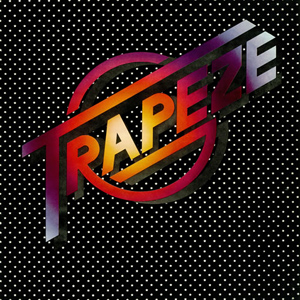
Trapeze, also known as Trapeze 1975, is the fifth studio album by English hard rock band Trapeze. Recorded with producer Steve Smith at Island Studios, London, it was released in 1975 by Warner Bros. Records. The album was preceded by the release of one single, a cover version of "On the Sunny Side of the Street", originally recorded by Frank Sinatra.

Medusa is the second studio album by British rock band Trapeze. Recorded in 1970 at Morgan Studios, it was produced by The Moody Blues bassist John Lodge and released in November 1970 by Threshold Records. The album was preceded by the release of the single "Black Cloud" in 1970.

Trapeze is the debut studio album by British rock band Trapeze. Recorded in 1969 at Morgan Studios and Decca Studios, it was produced by the Moody Blues bassist John Lodge and released in May 1970 as the second album on Threshold Records, a record label founded by Lodge's band. Trapeze is the band's only album to feature founding member John Jones ; both he and Terry Rowley left shortly after its release.
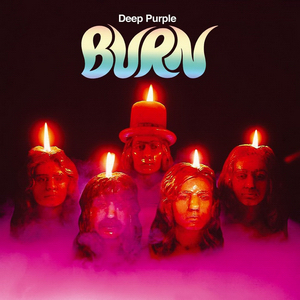
Burn is the eighth studio album by English rock band Deep Purple. It was released on 15 February 1974 by Warner Bros. and Purple/EMI internationally. It was the first album to feature then-unknown lead singer David Coverdale. The group's Mark III line-up for their recording debut included Coverdale, Glenn Hughes on bass and vocals, Ritchie Blackmore on guitar, Jon Lord on keyboards, and Ian Paice on drums.
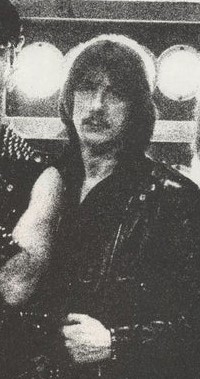
David Holland was an English drummer, best remembered for his time with the rock band Trapeze from 1969 to 1979 and Judas Priest from 1979 to 1989.
Finders Keepers were an English band featuring then-future Trapeze members Glenn Hughes, Mel Galley, and Dave Holland.

You Are the Music... We're Just the Band is the third studio album by British rock band Trapeze. Recorded with producer Neil Slaven, it was released in March 1972 by Threshold Records. The album was followed by the release of the single "Coast to Coast" in September.
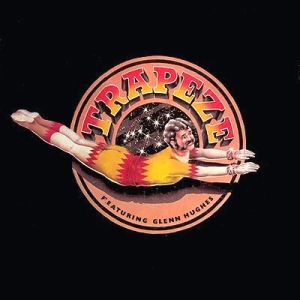
The Final Swing is a compilation album by English hard rock band Trapeze. Released in 1974 by Threshold Records, it features tracks from the band's first three albums, Trapeze, Medusa and You Are the Music...We're Just the Band, as well as two new tracks produced by Gerry Hoff.

Welcome to the Real World is a live album by the band Trapeze released in 1998. This album is from the reunion tour of 1992 of the original line-up of Trapeze of Mel Galley, Glenn Hughes & Dave Holland with the addition of Asia and Yes keyboard player, Geoff Downes.

Way Back to the Bone is a compilation album by the band Trapeze of previously released material from 1970-1972. It features songs from the original line-up of Mel Galley, Glenn Hughes & Dave Holland.
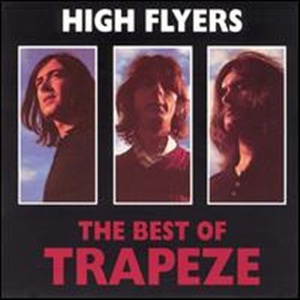
High Flyers is a compilation album by the band Trapeze with the original line up of Galley, Holland, and Hughes.

Live at the Boat Club is an album by the British rock band Trapeze.

Melville John Galley was an English guitarist, best known for his work with Whitesnake, Trapeze, Finders Keepers and Phenomena.

Play Me Out is the first solo record by former Deep Purple and Trapeze bassist/vocalist Glenn Hughes. It was first released in July 1977. The album marked a definite change in style to Hughes’ hard rock albums with Deep Purple, moving into a funk and soul inspired direction. The album was reissued in 2010 as a special on-demand release, with the audio remastered from the original quarter inch tapes.

From Now On... is a solo studio album by former Deep Purple, Black Sabbath and Trapeze bassist/vocalist Glenn Hughes. It was released in 1994 and had a distinctive AOR sound.

Return of Crystal Karma (often abbreviated to R.O.C.K.) is a studio album by former Deep Purple, Black Sabbath and Trapeze vocalist/bassist Glenn Hughes. The album was released 19 of June 2000 on SPV and Nippon records.
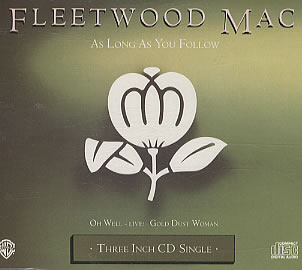
"As Long as You Follow" is a song by British-American rock band Fleetwood Mac. Performed by Christine McVie and written alongside her then-husband, Eddy Quintela, the song was one of two new tracks on the band's 1988 greatest hits album, along with "No Questions Asked". Lead guitarist Rick Vito singled out the guitar solo on "As Long as You Follow" as his best work with Fleetwood Mac.
















